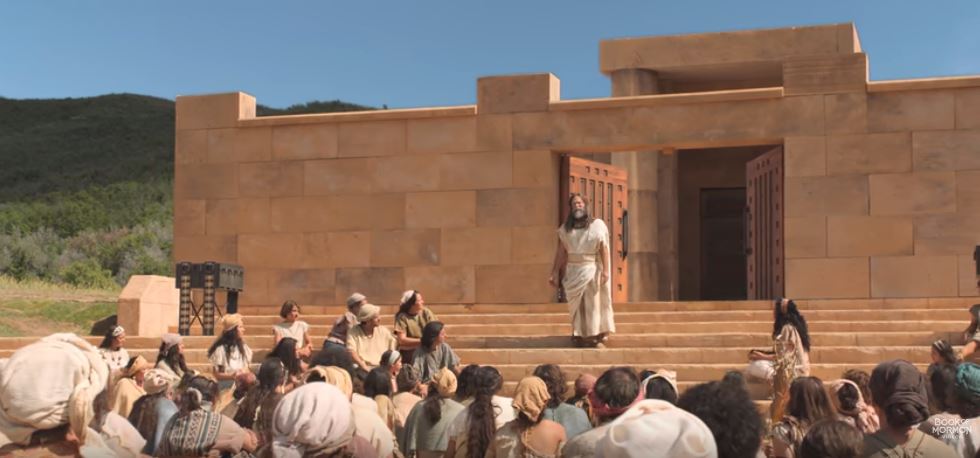To accompany your Come Follow Me study for April 1-7
In addition to reading Jacob 1-4 this week, you will enjoy watching the following related videos:
You would also enjoy reading the following chapter from the Book of Mormon Institute Student Manual:
Chapter 15: Jacob 1–4 (churchofjesuschrist.org)
If you would like a Kahoot game related to this material which you could use for personal study or use with your family or your class, click here: https://create.kahoot.it/share/jacob-1-4/e352fb52-f174-43a0-8e93-d5c2373337e7. To use it with a group, after clicking on this link, you will need to log into Kahoot, create a free account if you have not done so previously, and then click on the blue “Start” button. Some of the Kahoot questions may presuppose that the player has read through the suggested answers to the following Points to Ponder and at least has browsed the Institute student manual as well.
Points to Ponder in Jacob 1- 4
1. Jacob 1:4 suggests that Jacob was instructed to record revelations on the plates; 1:6 indicates they had many revelations in his day; but the book of Jacob records very few of these. Why do you suppose that was? Shouldn’t all revelations be recorded? What relevance do your answers have for a correct understanding of the nature of the Doctrine and Covenants?
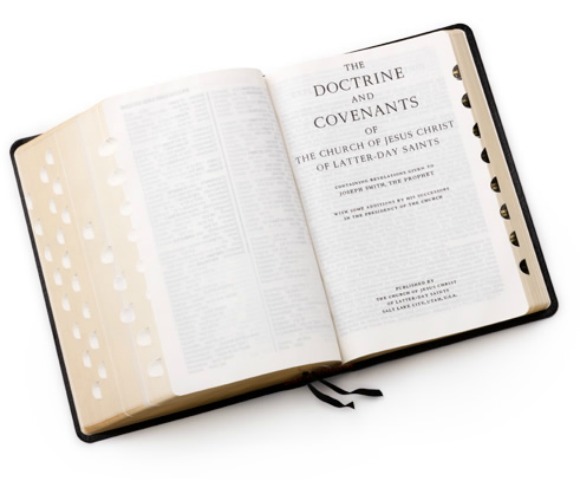
2. What significance do you see in the fact that Nephi “anointed” a new king rather than merely “appointed” him? (1:9)
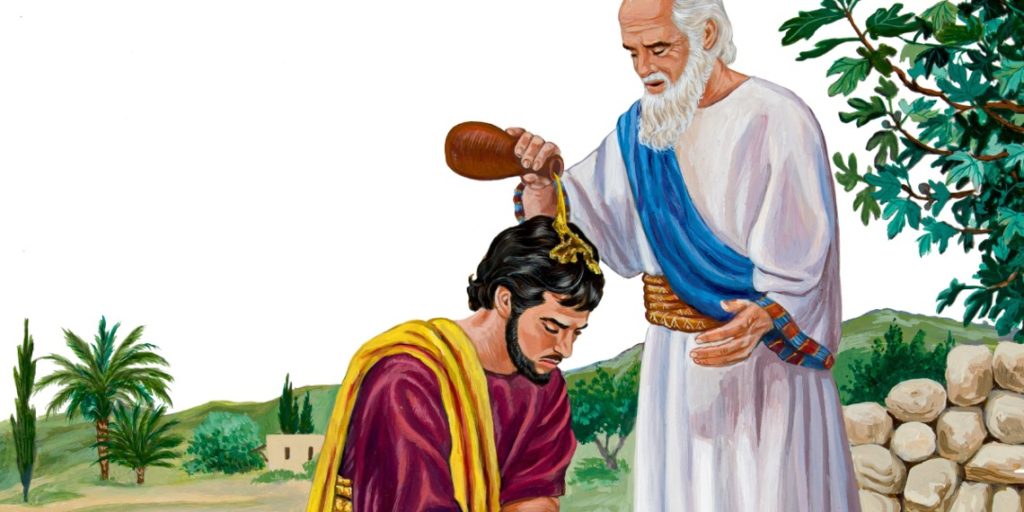
3. What do you feel is meant by “magnifying” an office? How does it differ from merely fulfilling a calling or honorably serving? (1:19)

4. Compare Jacob 1:19 with Ezekiel 3:17‑21. How guilty should you feel about missed opportunities to share the gospel, or past neglect of ministering assignments? What obligations do you have if a Latter‑day Saint friend is about to marry out of the Church? Would he be likely to listen to you if you tried to talk him out of it?

5. Why do the general authorities speak more specifically and strongly about sexual transgressions today than they did 50 years ago in general conference? What similarities do you see between them and Jacob in that respect? (2:7ff)
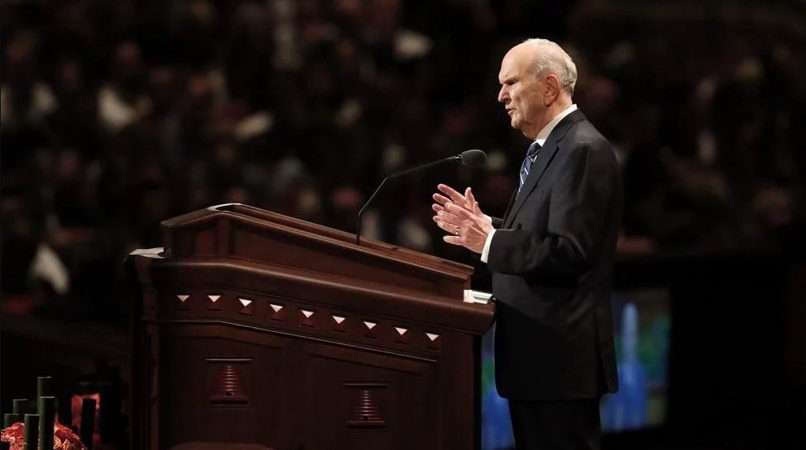
6. If it is so hard for a rich person to enter the kingdom of heaven, why are so many Church leaders relatively wealthy? Would the Lord rather have you wealthy or poor? Why? If it’s true that “after ye have obtained a hope in Christ ye shall obtain riches, if ye seek them,” why are so many faithful saints still not rich? Do they prefer it that way? (2:18‑19)

7. What would you do if you had $10,000,000? Are you sure? Do you think you’d be happier than you are now? Why?

8. Anti‑Mormon books often point to 2:24 and 2:27 and say that Latter-day Saint plural marriage violated our own Book of Mormon. How would you explain the passage?
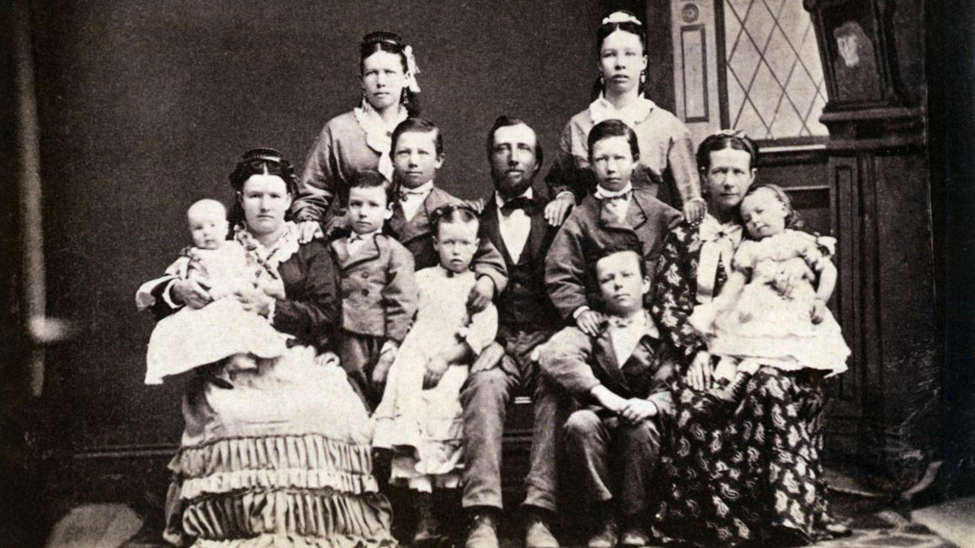
9. How do you reconcile Jacob 2:24, which says that it was abominable before the Lord that David had many wives and concubines, with D&C 132:39, which says “David’s wives and concubines were given unto him of me”?
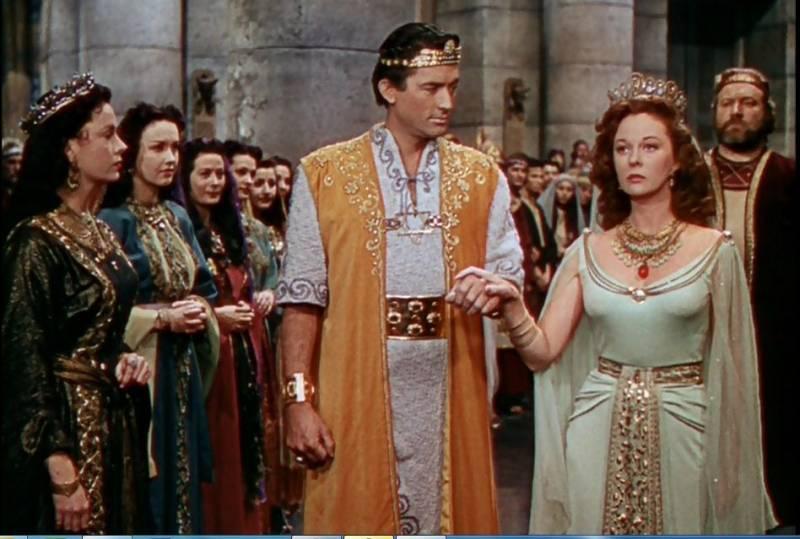
10. What, according to Jacob, was the single most important reason the Lamanites, as opposed to the Nephites, were promised they would never be utterly destroyed? Is our society today more like that of the Nephites or Lamanites in that respect? (2:25; 3:6-8.)
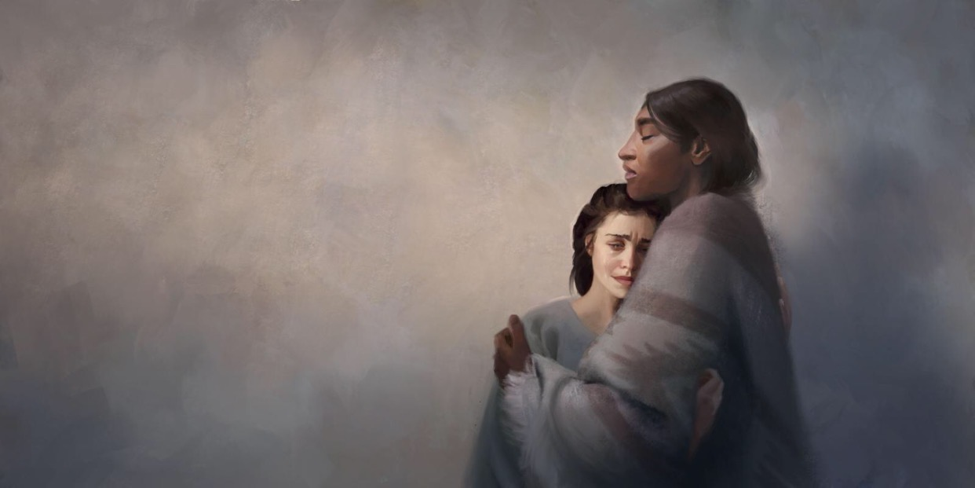
11. What do you know about the fulfillment of the prophecy in 3:4?

12. We’ve heard of the large plates of Nephi, the small plates, the plates of Mormon, etc., but what are the “plates of Jacob” referred to in 3:14? Why were they so named? Do you see a little humor in the answer?
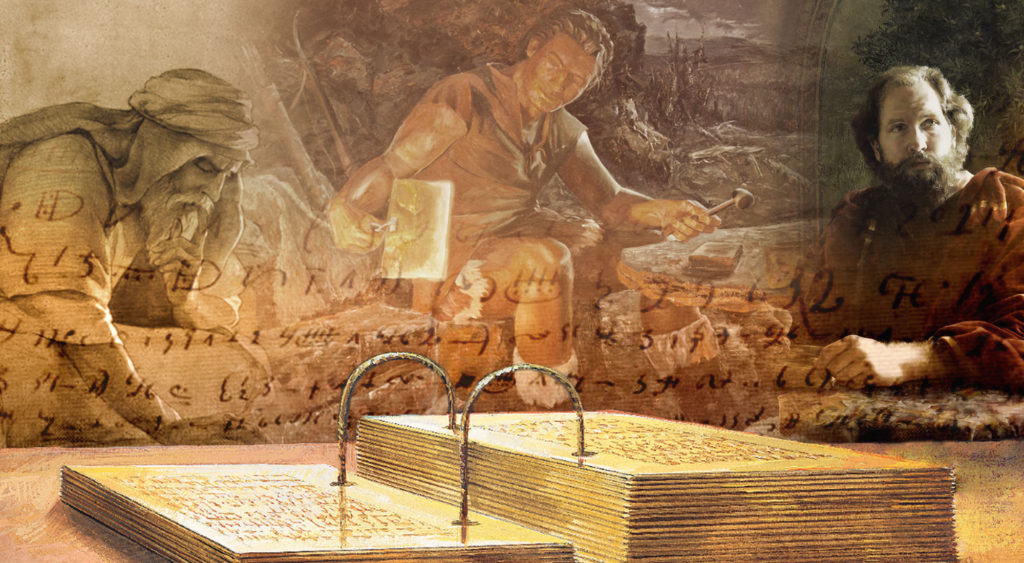
13. Wherein have you seen people try to “counsel the Lord”? What implications does this passage have for our prayers? (4:10)
14. What does Jacob mean in saying that the Jews were blinded because of “looking beyond the mark”? (4:14) Can you cite modern examples of people seeking for things they cannot understand?

15. Jacob mentions in 4:1 how difficult it was to engrave their words upon the plates. How long do you think it would have taken him to write all of the Book of Jacob? How do you feel when you think about it?
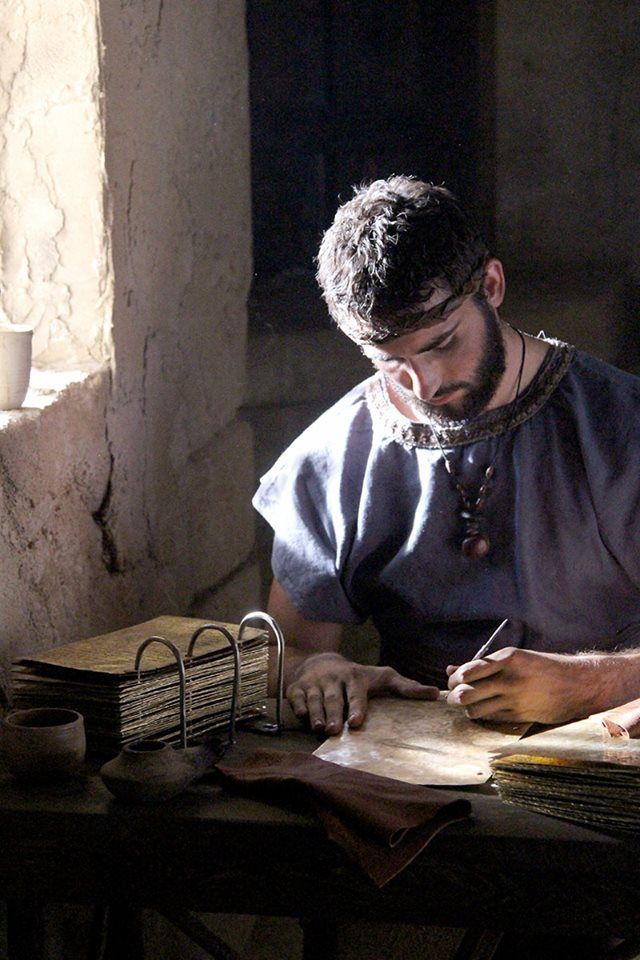
Possible Answers to Points to Ponder in Jacob 1-4
1. Jacob 1:4 suggests that Jacob was instructed to record revelations on the plates; 1:6 indicates they had many revelations in his day; but the book of Jacob records very few of these. Why do you suppose that was? Shouldn’t all revelations be recorded? What relevance do your answers have for a correct understanding of the nature of the Doctrine and Covenants?
Most revelations are for one’s personal guidance and need not and probably should not be shared generally. The Doctrine and Covenants does not claim to be a comprehensive collection of all of Joseph Smith’s revelations but a selection. In the early days of his ministry, much of what he received from the Lord was recorded as a revelation in the Doctrine and Covenants. Later in his life, the entries in the D&C were much fewer, but the material in his sermons (including some of the greatest doctrines he ever taught) was much more extensive. It would appear that his later teachings were as much the result of revelation as his earlier ones, but that the Prophet didn’t feel the need to record them in the same way as earlier ones.
2. What significance do you see in the fact that Nephi “anointed” a new king rather than merely “appointed” him? (1:9)
Kingship among the Nephites had a religious as well as a political dimension, which was typical of ancient kings generally.
3. What do you feel is meant by “magnifying” an office? How does it differ from merely fulfilling a calling or honorably serving? (1:19)
It would seem that just as a magnifying glass is used to make something appear bigger, one who magnifies a calling would look for how to do more in his assignment rather than how to get away with doing less.
4. Compare Jacob 1:19 with Ezekiel 3:17‑21. How guilty should you feel about missed opportunities to share the gospel, or past neglect of ministering assignments? What obligations do you have if a Latter‑day Saint friend is about to marry out of the Church? Would he be likely to listen to you if you tried to talk him out of it?
When we repent, we should not wallow in guilt or dwell excessively on past missed opportunities. But we should take seriously our present responsibility to warn (teach) those for whom we have responsibility. In the case of the friend who is about to marry outside the Church, we needn’t resort to unrighteous domination by trying to boss him around, but as a friend we might want to help him consider the consequences of his proposed action, whether or not he is inclined to listen to us.
5. Why do the general authorities speak more specifically and strongly about sexual transgressions today than they did 50 years ago in general conference? What similarities do you see between them and Jacob in that respect? (2:7ff)
Temptation is more rampant and sin is more blatant and open than it was 50 years ago, requiring greater specificity and emphasis today.
6. If it is so hard for a rich person to enter the kingdom of heaven, why are so many Church leaders relatively wealthy? Would the Lord rather have you wealthy or poor? Why? If it’s true that “after ye have obtained a hope in Christ ye shall obtain riches, if ye seek them,” why are so many faithful saints still not rich? Do they prefer it that way? (2:18‑19)
The Lord intends to make us all eternally rich and would love to bless us with riches here and now, but it would not be good for many of us. The promise that those who first obtain a hope in Christ will obtain riches if they seek them appears to be true generally, though not necessarily specifically, much like the promise that observers of the Word of Wisdom will run and not be weary and walk and not faint. Those Church leaders who are wealthy were not called because of their wealth but because the same qualities of industry and competence that made them successful in the world can help them become great leaders in the Lord’s kingdom, too.
7. What would you do if you had $10,000,000? Are you sure? Do you think you’d be happier than you are now? Why?
Your choice. It is quite possible one could be happier, but it is at least as likely he could end up more miserable, depending on what he did with the $10,000,000.
8. Anti‑Mormon books often point to 2:24 and 2:27 and say that Latter-day Saint plural marriage violated our own Book of Mormon. How would you explain the passage?
Jacob 2:30 clarifies that the Lord may on occasion for specific purposes command plural marriage, but that unless he does, the practice is abominable in the sight of the Lord. Both past and present Latter-day Saint practice is fully consistent with the Book of Mormon teachings on the subject.
9. How do you reconcile Jacob 2:24, which says that it was abominable before the Lord that David had many wives and concubines, with D&C 132:39, which says “David’s wives and concubines were given unto him of me”?
David’s first wives were given to him by the Lord, but when David took Uriah’s wife in addition, it was nothing but adultery and incurred the Lord’s condemnation, as did Solomon’s excesses.
10. What, according to Jacob, was the single most important reason the Lamanites, as opposed to the Nephites, were promised they would never be utterly destroyed? Is our society today more like that of the Nephites or Lamanites in that respect? (2:25; 3:6-8.)
Marital fidelity among the Lamanites as opposed to the licentiousness of the Nephites was the difference. Unfortunately, much of the world today, including the US, seems more like the Nephites in this respect.
11. What do you know about the fulfillment of the prophecy in 3:4?
In the Book of Omni we read how the Lord led Mosiah and the few righteous who would follow him from the land of Nephi up to Zarahemla.
12. We’ve heard of the large plates of Nephi, the small plates, the plates of Mormon, etc., but what are the “plates of Jacob” referred to in 3:14? Why were they so named? Do you see a little humor in the answer?
These are what we normally call the small plates of Nephi, but Jacob evidently felt that if he was to be in charge of them now, he deserved to rename them!
13. Wherein have you seen people try to “counsel the Lord”? What implications does this passage have for our prayers? (4:10)
Some people seem to feel they know better than the Lord what the Church’s policy on same-sex marriage should be, whether or not women should hold the priesthood, or what substances should be okay to ingest. Jacob’s counsel suggests that rather than tell the Lord in prayer what He needs to do for us, it would be better to always add “if it be Thy will,” or something equivalent.
14. What does Jacob mean in saying that the Jews were blinded because of “looking beyond the mark”? (4:14) Can you cite modern examples of people seeking for things they cannot understand?
Rather than look for a humble spiritual leader who could save them from their sins, the Jews were looking for a military leader who could free them from Roman bondage. Today some members are more interested in what might be called “mysteries” than in the implementation of faith, repentance, and daily righteousness. Some would rather focus on buried passages in the Journal of Discourses than read the latest issue of the Liahona.
15. Jacob mentions in 4:1 how difficult it was to engrave their words upon the plates. How long do you think it would have taken him to write all of the Book of Jacob? How do you feel when you think about it?
We can’t know for sure how long it would have taken him, but certainly, it would have required many hours of painstaking work. I’m glad he didn’t leave any more out than he did. The same goes for other Book of Mormon writers. Mormon, in particular, had the job not only of engraving but of condensing and editing, without the aid of a computer! Someday we must thank those brethren.
